Este blogue é destinado aos estudantes, professores e os interessados em aprender um pouco de Língua Estrangeira Moderna, o Inglês.
Translate
sexta-feira, 11 de abril de 2014
Simple Present - Exercises
Exercises
Use the present simple affirmative
1. I ________ (go) shopping with my brother.
2. We sometimes ________ (use) a dictionary in class.
3. My friends ________ (study) Italian at their school.
4. School ________ (finish) at three o´clock.
5.You ________ (live) near me.
6. He ________(like) rap music.
7. She ________ (do) her homework before dinner.
8. We ________ (play) tennis in school on Wednesday afternoon.
9. I ________ (watch) TV in the evening.
10. My mother ________ (teach) art.
Answers
1. I go shopping with my brother.
2. We sometimes use a dictionary in class.
3. My friends study Italian at their school.
4. School finishes at three o´clock.
5.You live near me.
6. He likes rap music.
7. She does her homework before dinner.
8. We play tennis in school on Wednesday afternoon.
9. I watch TV in the evening.
10. My mother teaches art.
Write the sentences in negative
1. I study French._____________________________________________
2. School finishes at two o´clock.
_____________________________________________
3. You copy from other students.
_____________________________________________
4. We think English is easy.
_____________________________________________
5. My friends play volleyball.
_____________________________________________
6. I watch TV on Saturday morning.
_____________________________________________
7. She speaks Chinese.
_____________________________________________
8. The dog likes cats.
_____________________________________________
9. They listen to pop music.
_____________________________________________
10. I play with my hamster every day.
_____________________________________________
Answers
1. I don´t study French.
2. School doesn´t finish at two o´clock.
3. You copy from other students.
4. We don´t think English is easy.
5. My friends don´t play volleyball.
6. I don´t watch TV on Saturday morning.
7. She doesn´t speak Chinese.
8. The dog doesn´t like cats.
9. They don´t listen to pop music.
10. I don´t play with my hamster every day.
Write the sentences and finish the short answers
1. live / at / you / Do / school / ?
_____________________________________________
No, ___________________
2. in / students / Do / the canteen / ? / eat
_____________________________________________
Yes, ___________________
3. to school / your brother / on Saturday / ? / Does / go
_____________________________________________
No, ___________________
4. live / near / Do / your friends / you / ?
_____________________________________________
Yes, ___________________
5. at / school/ finish / Does / three o´clock / ?
_____________________________________________
No, ___________________
Answers
1. Do you live at school?
No, I don´t.
2. Do students eat in the canteen?
Yes, they do.
3. Does your brother go to school on Saturday?
No, he doesn´t.
4. Do your friends live near you?
Yes, they do.
5. Does school finish at three o´clock?
No, it doesn´t.
Present simple
1. I _________ (play) tennis after school.
2. You _________ (start) school at nine o´clock.
3. We _________ (have) lunch at school.
4. They _________ (watch) TV after dinner.
5. She _________ (not get up) at seven o´clock.
6. We _________ (go) to bed at nine o´clock.
7. What time _________ I (get) up?
8. What _________ she _________ after school?
9. He _________ (play) football.
10. Susan _________ (go) to the cinema.
11. My mother _________ (start) work at half past seven.
12. What _________ they _________ (do) in the evening?
13. How _________ you _________ (spell) that in English?
14. Brian _________ (get) up at eight o´clock.
15. Where _________ John and Martin _________ (go ?
16. Serena _________ (not know) what to do.
17. Wendy _________ (not like) to do shopping.
18. My grandfather _________ (not live) in London.
19. My sisters _________ (walk) to school every day.
20. My best friend _________ (like) math.
21. My brother and I _________ (have) breakfast half past seven.
22. My cousin _________ (study) biology.
23. We _________ (go) to the cinema at the weekend.
24. When _________ Mary _________ (start) school?
25. Gill _________ (not work) in a supermarket.
Answers
1. I play tennis after school
2. You start school at nine o´clock.
3. We have lunch at school.
4. They watch TV after dinner.
5. She doesn´t get up at seven o´clock.
6. We go to bed at nine o´clock.
7. What time do I get up?
8. What does she do after school?
9. He plays football.
10. Susan goes to the cinema.
11. My mother starts work at half past seven.
12. What do they do in the evening?
13. How do you spell that in English?
14. Brian gets up at eight o´clock.
15. Where do John and Martin go ?
16. Serena doesn´t know what to do.
17. Wendy doesn´t like to do shopping.
18. My grandfather doesn´t live in London.
19. My sisters walks to school every day.
20. My best friend likes math.
21. My brother and I have breakfast half past seven.
22. My cousin studies biology.
23. We go to the cinema at the weekend.
24. When does Mary start school?
25. Gill doesn´t work in a supermarket.
Present simple
1. Ana _________ (not watch) TV.
2. Peter _________ (not study) French.
3. Javi _________ (watch) TV.
4. Antonio _________ (play) computer games.
5. Luis Miguel _________ (not read) magazines.
6. _________ María _________ (listen) to music?
7. _________ Beatriz _________ (tidy) her room?
8. My parents _________ (read) the newspaper.
9. When _________ your brother _________ (surf) the internet?
10. Who _________ you _________ (play) football with?
11. What _________ your sister _________ (do) on Saturday?
12. Blanca _________ (go) to a sleepover.
13. Isabel _________ (not phone) a friend.
14. I _________ (eat) a hamburger every weekend.
15. My Mum _________ (like) classical music.
16. I _________ (not eat) pizza.
17. I _________ (drink) water.
18. Gonzalo _________ (help) his friends with their homework.
19. Carlos _________ (make) people laugh.
20. Alan _________ (not like) talking to new people.
21. Chris _________ (do) the housework for her parents.
22. I _________ (want) to join Daniel´s fan club.
23. Isabel and I _________ (see) each other every week.
24. Linda _________ (wear) new clothes.
25. Derek and Sam _________ (wear) striped T-shirts.
Answers
1. Ana doesn´t watch TV.
2. Peter doesn´t study French.
3. Javi watches TV.
4. Antonio plays computer games.
5. Luis Miguel doesn´t read magazines.
6. Does María listen to music?
7.Does Beatriz tidy her room?
8. My parents read the newspaper.
9. When does your brother surf the internet?
10. Who do you play football with?
11. What does your sister do on Saturday?
12. Blanca goes to a sleepover.
13. Isabel doesn´t phone a friend.
14. I eat a hamburger every weekend.
15. My Mum likes classical music.
16. I don´t eat pizza.
17. I drink water.
18. Gonzalo helps his friends with their homework.
19. Carlos makes people laugh.
20. Alan doesn´t like talking to new people.
21. Chris does the housework for her parents.
22. I want to join Daniel´s fan club.
23. Isabel and I see each other every week.
24. Linda wears new clothes.
25. Derek and Sam wear striped T-shirts.
Present Simple
1. Uncle Joe _________ (wear) glasses.
2. Ducks _________ (love) water.
3. The sun _________ (rise) in the east.
4. The children _________ (not go) to school by bus.
5. Juanma _________ (enjoy) singing.
6. Jesus _________ (not lend) me his bike.
7. Monkeys _________ (like) bananas.
8. Pepi _________ (not collect) stamps.
9. The earth _________ (go) around the sun.
10. It often _________ (snow) in winter.
11. We _________ (wash) our hands.
12. We _________ (eat) three meals a day.
13. _________ he _________ (type) very fast?
14. Lucía _________ (work) at the court.
15. Everyone _________ (make) mistakes.
16. Winter _________ (not come) after spring.
17. _________ you _________ (like) my new bike?
18. _________ she _________ (walk) to school?
19. Pedro _________ (speak) English very well.
20. My dog _________ (bark) very loudly.
21. _________ Sara _________ (read) in bed?
22. _________ babies _________ (sleep) during the day?
23. Eva _________ (try) not to disturb.
24. Eagles _________ (fly) high in the sky.
25. My sister _________ (cook) all our meals.
Answers
1. Uncle Joe wears glasses.
2. Ducks love water.
3. The sun rises in the east.
4. The children don´t go to school by bus.
5. Juanma enjoys singing.
6. Jesus doesn´t lend me his bike.
7. Monkeys like bananas.
8. Pepi doesn´t collect stamps.
9. The earth goes around the sun.
10. It often snows in winter.
11. We wash our hands.
12. We eat three meals a day.
13. Does he type very fast?
14. Lucía works at the court.
15. Everyone makes mistakes.
16. Winter doesn´t come after spring.
17. Do you like my new bike?
18. Does she walk to school?
19. Pedro speaks English very well.
20. My dog barks very loudly.
21. Does Sara read in bed?
22. Do babies sleep during the day?
23. Eva tries not to disturb.
24. Eagles fly high in the sky.
25. My sister cooks all our meals.
quinta-feira, 10 de abril de 2014
DAILY ROUTINE

Common verbs to describe Daily Routine:
wake up – wash your face – do morning exercise – take a shower – watch morning news on TV – dry your hair – brush your teeth – eat breakfast – brush your teeth – get dressed – go to the bathroom – make your bed – go to school – go to work – study – have lunch – get home – do your homework – have dinner – take a bath – go to bed – go to sleep.
Now let’s look at the following reading and conversation! People are talking about daily routine. Then practice to talk about that in English
Reading activities about Daily Routine
Pre-reading questions
- What’s your job?
- What do you do in your free time?
- How do you spend your day?
- Do you get up early on weekends
Read the passage and conversation , answer the questions below:
Daily Routine
 My name’s Christine Yang. I am from China. I am a university student. I study Economics. I get up very early at around 6.30 every weekdays. I do morning exercise in about 30 minites. I have breakfast at 7.00 am. I go to school at 7.30 because my classes start at 8.00 am. I finish school at 11.30, and I have lunch at school cafe. I leave school at 4.00 in the afternoon. I arrive home at 4.30 pm. I have dinner at 6 and then watch T.V or go on the internet for a while. I learn my lesson and prepare for coming class till 11.00 pm and I go to bed.
My name’s Christine Yang. I am from China. I am a university student. I study Economics. I get up very early at around 6.30 every weekdays. I do morning exercise in about 30 minites. I have breakfast at 7.00 am. I go to school at 7.30 because my classes start at 8.00 am. I finish school at 11.30, and I have lunch at school cafe. I leave school at 4.00 in the afternoon. I arrive home at 4.30 pm. I have dinner at 6 and then watch T.V or go on the internet for a while. I learn my lesson and prepare for coming class till 11.00 pm and I go to bed.
Questions:
- What does Yang do?
- What time does she get up on weekdays?
- what does she do before having breakfast?
- What time does she leave home?
- Where does she have lunch?
Conversation 1: Daily Schedules
- Kim: What do you do every day, Bob?
- Bob: I get up at about 10.00 on weekdays.
Then I watch News on T.V for an hour and have breakfast at about noon. - Kim: Really? What time do you go to work? .
- Bob: I start work at 4.00 pm.
- Kim: And what time do you arrive home at night?
- Bob: I get home quite late, at midnight.
- Kim: What do you do exactly?
- Bob: Well, I am an……..
Questions:
- What time does Bob get up?
- What time does he have lunch?
- What time does he start work?
- When does he arrive home at night?
http://englishonlinecenter.com/2011/11/learning-to-talk-about-daily-routines-in-english/
PRESENT PERFECT AND PAST SIMPLE
Can you use the present perfect and the past simple? Have a look at this cartoon and explain the difference to your partner.
Look at the signal words to distinguish both tenses:
In this link you have more practice:
http://www.englishpage.com/verbpage/verbs5.htm
http://2esobilingualnorba.blogspot.com.br/
terça-feira, 18 de março de 2014
PRESENT CONTINUOUS TENSE
Look at the pictures and write about what it is happening.
Use the following verbs: do homework/ travel/ play/ dance/ cry/ rain/ clean house/ fly plane/carry suitcases/hunt/ eat/ wave/cycle or ride bike/ open/sleep/ deliver mail/investigate/ run/ walk dog/ paint fence/ drink coffee
 |  | 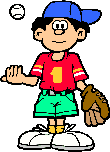 |
 |  | 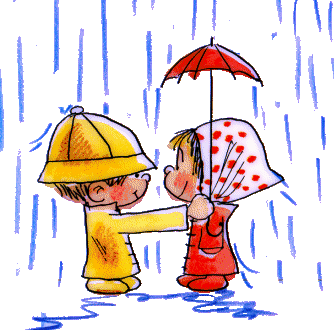 |
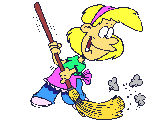 | 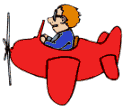 |  |
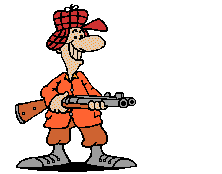 | 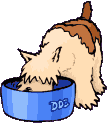 |  |
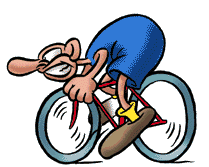 | 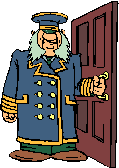 | 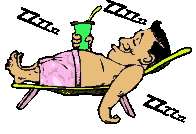 |
 |  | 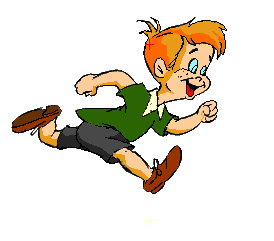 |
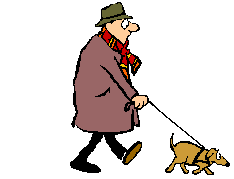 |  |  |
http://www.englishexercises.org/makeagame/viewgame.asp?id=6819
PRESENT SIMPLE OR PRESENT CONTINUOUS
Use the Present Continuous with Normal Verbs to express the idea that something is happening now, at this very moment.
Spelling of Verb + ING
For many verbs we make the ING form by simply adding -ING to end of the verb.
- eat – eating
- speak – speaking
- cook – cooking
- start – starting
- do – doing
- stay – staying
- fix – fixing
- try – trying
Verbs ending with -e (with the exception of verbs ending in -ee and -ie)
Drop the -e and add ING
- hope – hoping
- ride – riding
- make – making
- write – writing
Verbs ending with -ee
Just add -ING
- agree – agreeing
- flee – fleeing
- see – seeing
Verbs ending with -ie
Change the -ie to -y and add -ING
- die – dying
- tie – tying
- lie – lying
Verbs ending with one vowel and one consonant (with the exception of w, x, and y)
For one syllable verbs
double the consonant and add -ING
- jog – jogging
- sit – sitting
- run – running
- stop – stopping
For two syllable verbs
If the 1st syllable is stressed, just add ING
- answer – answering
- offer – offering
- listen – listening
- visit – visiting
If the 2nd syllable is stressed , double the consonant and add ING
- admit – admitting
- prefer – preferring
- begin – begining
NOW, THE DIFFERENCE BETWEEN THE PRESENT SIMPLE AND PRESENT CONTINUOUS IS, PRESENT SIMPLE IS FOR ROUTINES, THINGS THAT YOU ALWAYS, USUALLY, SOMETIMES DO, WITH A FREQUENCY OF TIME, THAT IS WHY THE ADVERB OF FREQUENCY GOES WITH PRESENT SIMPLE.
THEN, PRESENT CONTINUOUS IS AN ACTION I DO RIGHT NOW, AT A PERIOD OF TIME, AND AFTER THAT, IT ENDS.
http://englishteacherdotme.wordpress.com/tag/present-simple-or-present-continuous/
domingo, 16 de março de 2014
quinta-feira, 13 de março de 2014
Future will
Professora Andréa: Future tense - will: FUTURE WITH WILL Futuro – expressa ações que irão acontecer. O futuro simples é formado pelo auxiliar WILL seguido do verbo principal no ...
terça-feira, 25 de fevereiro de 2014
Have to / Has to
HAVE TO / HAS TO Remember· “Have to” is used to express obligation (when something is necessary).
Ex. I have to make my bed everyday 
· Have to is used with I, you, we, they (in affirmative sentences)
Fill in the gaps using “have to”, “has to”, “don’t have to”, “doesn’t have to”
- We get up early on Mondays

- Mary go to school on Saturdays
- She wear glasses because she can’t see very well

- John tidy his bedroom before going to bed.
- I lay the table before having lunch

- You take your math book to school today, you don’t have math class

- He wear uniform in his school. Everybody can wear what they like.
- My father is a policeman. He wear a uniform.

Say whether these sentences are in present or past
- We didn’t have to get up early last Saturday
- She has to go to school
- Did you have to set the table?
- We have to visit our grandparents
- He had to tidy his room yesterday





segunda-feira, 24 de fevereiro de 2014
domingo, 23 de fevereiro de 2014
What is Mickey Mouse doing?

https://www.blendspace.com/lessons/m1Yw4XMN65aQDQ/present-simple-versus-present-continuous
Countries & nationalities - Worksheet
Teaching-Frenzy: Countries & nationalities - Worksheet: Hello there! I'm back to work and back to my Worksheets as well. This one is about personal information and it was developed for begi...
Assinar:
Comentários (Atom)








